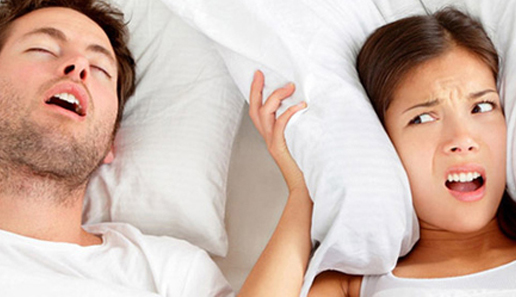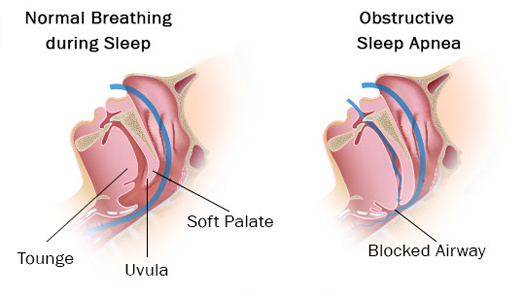In many cases, an apnea, or temporary pause in breathing, is caused by the tissue in the back of the throat collapsing. The muscles of the upper airway relax when you fall asleep. If you sleep on your back, gravity can cause the tongue to fall back. This narrows the airway, which reduces the amount of air that can reach your lungs. The narrowed airway causes snoring by making the tissue in back of the throat vibrate as you breathe. Sleep apnea can make you wake up in the morning feeling tired or unrefreshed even though you have had a full night of sleep. During the day, you may feel fatigued, have difficulty concentrating or you may even unintentionally fall asleep. This is because your body is waking up numerous times throughout the night, even though you might not be conscious of each awakening.
The lack of oxygen your body receives can have negative long-term consequences for your health. This includes:
Obstructive Sleep Apnea Syndrome (OSA) is characterized by repetitive episodes of upper
airway obstruction that occur during sleep, usually associated with a reduction in blood
oxygen saturation. OSA may lead to high blood pressure, stroke, heart attack and/or
abnormal heart rhythms.
Central Sleep Apnea is characterized by the cessation of breath due to a lack of effort in
breathing during sleep. Central Sleep Apnea is not as common as OSA and is more difficult
to diagnose. Typically it is do to neuromuscular problems but other sources could be the
cause.
Signs and symptoms of Sleep Apnea
The major risk factor for sleep apnea is excess body weight. You are much more likely to have sleep apnea if you are overweight or obese. However, sleep apnea can occur in slim people too. Common risk factors for sleep apnea include:


© Copyright 2019 Powered by Carolina Pulmonary & Sleep Clinic. All Rights Reserved.